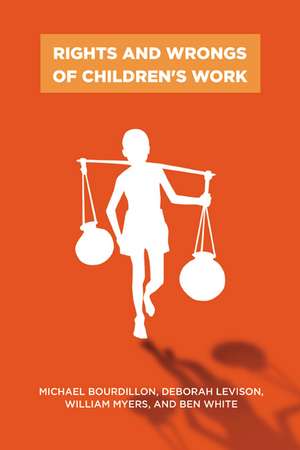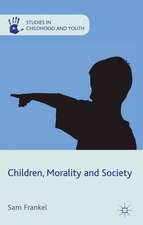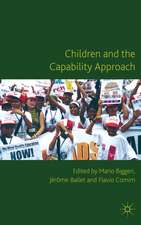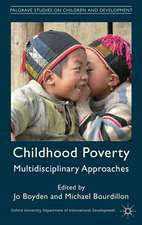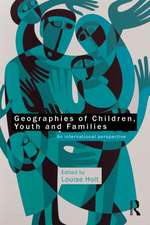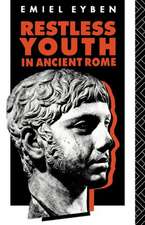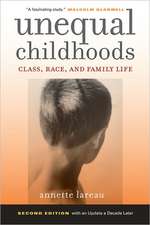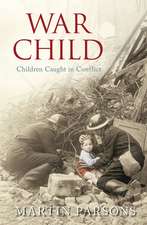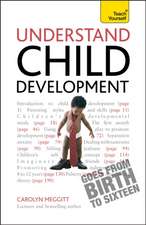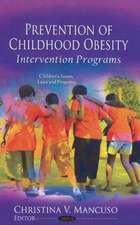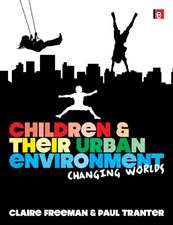Rights and Wrongs of Children's Work: Rutgers Series in Childhood Studies
Autor Michael Bourdillon, Deborah Levison, William Myers, Ben Whiteen Limba Engleză Paperback – 10 noi 2010
Rights and Wrongs of Children's Work, authored by an interdisciplinary team of experts, incorporates recent theoretical advances and experiences to explore the place of labor in children's lives and development.
This groundbreaking book considers international policies governing children's work and the complexity of assessing the various effects of their work. The authors question current child labor policies and interventions, which, even though pursued with the best intentions, too often fail to protect children against harm or promote their access to education and other opportunities for decent futures. They argue for the need to re-think the assumptions that underlie current policies on the basis of empirical evidence, and they recommend new approaches to advance working children's well-being and guarantee their human rights.
Rights and Wrongs of Children's Work condemns the exploitation and abuse of child workers and supports the right of all children to the best quality, free education that society can afford. At the same time, the authors recognize the value, and sometimes the necessity, of work in growing up, and the reality that a "workless" childhood, without responsibilities, is not good preparation for adult life in any environment.
This groundbreaking book considers international policies governing children's work and the complexity of assessing the various effects of their work. The authors question current child labor policies and interventions, which, even though pursued with the best intentions, too often fail to protect children against harm or promote their access to education and other opportunities for decent futures. They argue for the need to re-think the assumptions that underlie current policies on the basis of empirical evidence, and they recommend new approaches to advance working children's well-being and guarantee their human rights.
Rights and Wrongs of Children's Work condemns the exploitation and abuse of child workers and supports the right of all children to the best quality, free education that society can afford. At the same time, the authors recognize the value, and sometimes the necessity, of work in growing up, and the reality that a "workless" childhood, without responsibilities, is not good preparation for adult life in any environment.
| Toate formatele și edițiile | Preț | Express |
|---|---|---|
| Paperback (1) | 318.75 lei 6-8 săpt. | |
| Rutgers University Press – 10 noi 2010 | 318.75 lei 6-8 săpt. | |
| Hardback (1) | 830.20 lei 6-8 săpt. | |
| Rutgers University Press – 9 noi 2010 | 830.20 lei 6-8 săpt. |
Din seria Rutgers Series in Childhood Studies
-
 Preț: 229.03 lei
Preț: 229.03 lei -
 Preț: 234.22 lei
Preț: 234.22 lei -
 Preț: 254.31 lei
Preț: 254.31 lei -
 Preț: 253.87 lei
Preț: 253.87 lei -
 Preț: 229.85 lei
Preț: 229.85 lei -
 Preț: 177.39 lei
Preț: 177.39 lei -
 Preț: 254.42 lei
Preț: 254.42 lei -
 Preț: 285.16 lei
Preț: 285.16 lei -
 Preț: 309.15 lei
Preț: 309.15 lei -
 Preț: 314.87 lei
Preț: 314.87 lei -
 Preț: 314.87 lei
Preț: 314.87 lei - 23%
 Preț: 838.12 lei
Preț: 838.12 lei -
 Preț: 285.16 lei
Preț: 285.16 lei - 27%
 Preț: 826.56 lei
Preț: 826.56 lei -
 Preț: 285.16 lei
Preț: 285.16 lei -
 Preț: 292.55 lei
Preț: 292.55 lei -
 Preț: 307.95 lei
Preț: 307.95 lei -
 Preț: 305.37 lei
Preț: 305.37 lei -
 Preț: 289.79 lei
Preț: 289.79 lei -
 Preț: 306.56 lei
Preț: 306.56 lei -
 Preț: 342.92 lei
Preț: 342.92 lei -
 Preț: 306.73 lei
Preț: 306.73 lei -
 Preț: 339.86 lei
Preț: 339.86 lei -
 Preț: 285.16 lei
Preț: 285.16 lei -
 Preț: 286.52 lei
Preț: 286.52 lei -
 Preț: 311.56 lei
Preț: 311.56 lei -
 Preț: 304.82 lei
Preț: 304.82 lei -
 Preț: 286.09 lei
Preț: 286.09 lei -
 Preț: 306.73 lei
Preț: 306.73 lei -
 Preț: 272.25 lei
Preț: 272.25 lei -
 Preț: 319.71 lei
Preț: 319.71 lei -
 Preț: 313.95 lei
Preț: 313.95 lei -
 Preț: 343.52 lei
Preț: 343.52 lei -
 Preț: 289.97 lei
Preț: 289.97 lei
Preț: 318.75 lei
Nou
Puncte Express: 478
Preț estimativ în valută:
60.99€ • 65.22$ • 50.85£
60.99€ • 65.22$ • 50.85£
Carte tipărită la comandă
Livrare economică 17 aprilie-01 mai
Preluare comenzi: 021 569.72.76
Specificații
ISBN-13: 9780813548890
ISBN-10: 0813548896
Pagini: 320
Ilustrații: 7 illustrations.
Dimensiuni: 152 x 229 x 20 mm
Greutate: 0.46 kg
Ediția:None
Editura: Rutgers University Press
Colecția Rutgers University Press
Seria Rutgers Series in Childhood Studies
ISBN-10: 0813548896
Pagini: 320
Ilustrații: 7 illustrations.
Dimensiuni: 152 x 229 x 20 mm
Greutate: 0.46 kg
Ediția:None
Editura: Rutgers University Press
Colecția Rutgers University Press
Seria Rutgers Series in Childhood Studies
Notă biografică
MICHAEL F. C. BOURDILLON is a professor emeritus in the department of sociology at the University of Zimbabwe. He has worked with street children in Harare, and with working children regionally and internationally, and is the author and editor of several books including Earning a Life: Working Children in Zimbabwe.
DEBORAH LEVISON, an economist and demographer, is a professor at the University of Minnesota's Hubert H. Humphrey Institute of Public Affairs. Much of her research focuses on third world children's work and schooling in the context of the household.
WILLIAM E. MYERS is retired from the United Nations, where he addressed child work issues with UNICEF and the ILO. He is currently an associate in the department of human and community development at the University of California, Davis.
BEN WHITE is a professor of rural sociology at the Institute of Social Studies, The Hague, and a professor in social sciences at the University of Amsterdam. His books and edited volumes include Child Labour: Policy Options.
DEBORAH LEVISON, an economist and demographer, is a professor at the University of Minnesota's Hubert H. Humphrey Institute of Public Affairs. Much of her research focuses on third world children's work and schooling in the context of the household.
WILLIAM E. MYERS is retired from the United Nations, where he addressed child work issues with UNICEF and the ILO. He is currently an associate in the department of human and community development at the University of California, Davis.
BEN WHITE is a professor of rural sociology at the Institute of Social Studies, The Hague, and a professor in social sciences at the University of Amsterdam. His books and edited volumes include Child Labour: Policy Options.
Cuprins
Preface
Acknowledgments
List of Figures and Tables
List of Acronyms
1. Raising Questions, Questioning the Answers
"When I was fired, I cried for two weeks": How Intervention Went Wrong in Morocco's Garment Industry
Whose Interests?
Ways of Thinking
Children's Rights
Knowledge, Understanding, and Information
2. Work That Children Do
What Is Children's Work?
What Children Say about Why They Work
Concluding Comment
3. Children's Work in Historical and Comparative Perspective
Child Labor and the Industrial Revolution in Britain around the Nineteenth Century
Child Work, Education, and Interventions in Asia and Africa: Examples from Indonesia and Zimbabwe
Children, Work, and Education in Communist Revolutions and Post-Communist Transitions
International Standards and Trends in Interventions
4. Child Work and Poverty: A Tangled Relationship
What Is Poverty?
Defining and Measuring Labor-Force Work
Many Poor Children Do Not Work for Pay
Labor Supply and Labor Demand
General Patterns
Children's Earnings: How Much, and Who Gets Them?
Are Children Working Instead of Adults, or Undermining Adult Wages?
Conditional Cash Transfers as Compensation for School Enrollment
Is Child Work a Cultural Phenomenon Rather Than an Economic Necessity?
The Effects of Child Work on Poverty Dynamics: How Learning Matters
Does Poverty Cause Child Work?
5. Work in Children's Development
Framing the Issue
The Idea of Human "Development in Social Science
Concluding Observations
6. Education, School, and Work
"Earn-and-Learn": Tea Estates in Zimbabwe
Children's Perceptions
The Right to Education
School as Work
Problems with Schools
Can School Mix with Work?
Combining Labor-Force Work with School
Learning through Work
Conclusion
7. Children Acting for Themselves
Agency of Children
Street Children
Independent Migration
Organizations of Working Children
Child Participation in Making Decisions
8. Assessing Harm against Benefits
Child Domestic Work: Pros and Cons
A Continuum of Harm and Benefit
Intolerable Forms and Conditions of Work
Assessing Hazardous Work
Weighing Harm against Benefits
A Note on Exploitation
What Does This Mean in Practice?
9. The Politics of International Intervention
The Case of Child Garment Workers in Bangladesh: Tragedy or Scandal?
Stitching Footballs in Sialkot
What Should Be Learned from These Experiences?
Promoting and Protecting the Interests of Children Who Work: A Case in Egypt
Concluding Thoughts
10. Policies and Interventions: What Should They Achieve, and How?
Starting Points
Principles
Practice
Notes
References
Index
Acknowledgments
List of Figures and Tables
List of Acronyms
1. Raising Questions, Questioning the Answers
"When I was fired, I cried for two weeks": How Intervention Went Wrong in Morocco's Garment Industry
Whose Interests?
Ways of Thinking
Children's Rights
Knowledge, Understanding, and Information
2. Work That Children Do
What Is Children's Work?
What Children Say about Why They Work
Concluding Comment
3. Children's Work in Historical and Comparative Perspective
Child Labor and the Industrial Revolution in Britain around the Nineteenth Century
Child Work, Education, and Interventions in Asia and Africa: Examples from Indonesia and Zimbabwe
Children, Work, and Education in Communist Revolutions and Post-Communist Transitions
International Standards and Trends in Interventions
4. Child Work and Poverty: A Tangled Relationship
What Is Poverty?
Defining and Measuring Labor-Force Work
Many Poor Children Do Not Work for Pay
Labor Supply and Labor Demand
General Patterns
Children's Earnings: How Much, and Who Gets Them?
Are Children Working Instead of Adults, or Undermining Adult Wages?
Conditional Cash Transfers as Compensation for School Enrollment
Is Child Work a Cultural Phenomenon Rather Than an Economic Necessity?
The Effects of Child Work on Poverty Dynamics: How Learning Matters
Does Poverty Cause Child Work?
5. Work in Children's Development
Framing the Issue
The Idea of Human "Development in Social Science
Concluding Observations
6. Education, School, and Work
"Earn-and-Learn": Tea Estates in Zimbabwe
Children's Perceptions
The Right to Education
School as Work
Problems with Schools
Can School Mix with Work?
Combining Labor-Force Work with School
Learning through Work
Conclusion
7. Children Acting for Themselves
Agency of Children
Street Children
Independent Migration
Organizations of Working Children
Child Participation in Making Decisions
8. Assessing Harm against Benefits
Child Domestic Work: Pros and Cons
A Continuum of Harm and Benefit
Intolerable Forms and Conditions of Work
Assessing Hazardous Work
Weighing Harm against Benefits
A Note on Exploitation
What Does This Mean in Practice?
9. The Politics of International Intervention
The Case of Child Garment Workers in Bangladesh: Tragedy or Scandal?
Stitching Footballs in Sialkot
What Should Be Learned from These Experiences?
Promoting and Protecting the Interests of Children Who Work: A Case in Egypt
Concluding Thoughts
10. Policies and Interventions: What Should They Achieve, and How?
Starting Points
Principles
Practice
Notes
References
Index
Recenzii
"Bourdillon and colleagues analyze the problems, benefits, appropriate interventions, culture, and policies related to children's work with a respect for the individual rights of the children involved. Recommended."
"While this book is not the first to challenge conventional thinking on children's work, it is comprehensive in its analysis and bold in its call for change."
"In Rights and Wrongs of Children's Work, the authors provide us with a definitive and balanced examination of why it is that the majority of the world's children's work for a living. This is an excellent book, which has clearly been designed to engage both the novice and expert. The clarity of reflective thought in this book is particularly impressive and reassuring."
Descriere
Rights and Wrongs of Children's Work, authored by an interdisciplinary team of experts, incorporates recent theoretical advances and experiences to explore the place of labor in children's lives and development. Rights and Wrongs of Children's Work condemns the exploitation and abuse of child workers and supports the right of all children to the best quality, free education that society can afford.
